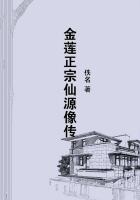It is the conduct of the community, not the inclination of individuals, that needs investigation. The mere desire for particular articles, so far from accounting for settled and peaceful ownership, tends in the opposite direction, namely, to conflict and the right of the strongest. No small amount of error in several departments of social philosophy, and especially in political economy, has arisen from reasoning from the desires of the individual, instead of from the history of the community.
A more promising line of inquiry might at first sight appear to be one to which Sir Henry Maine has alluded in Ancient Law . Observing that the question proposed by many theorists respecting the origin of property is -- what were the motives which first induced men to respect each other's possessions? -- he adds that "the question may still be put, without much hope of finding an answer, in the form of an inquiry into the reasons that led one composite group to keep aloof from the domain of another composite group." (2) Within each composite group men originally, it may be affirmed, did not "keep aloof from each other's domain,"for there was, in fact, no such separate domain. The idea, so far as any definite idea on the subject was dimly conceived, could only be that the group was an indivisible corporation, one in blood, property and customs.
Nor was it until a great advance in civilization had been made, that one community recognized any right whatever, collective or individual, on the part of the members of another community of different blood or origin, to their domain or other possessions, or even to life or liberty. Property in the infancy of social progress consisted, one may say, simply in a feeling of unity and consequent co-ownership on the part of the men of a tribe, horde, clan, sept, or family; the size of the group being conditioned in a coat measure by the means of subsistence and other environing circumstances.
So long as such a community led a wandering life, the co-ownership would be felt only in movables. But as its boundaries became circumscribed by its own growth, or by the neighbourhood of other communities, and its place of habitation in some degree fixed by the needs of incipient agriculture, landed property began to develop itself in the primitive forms set before us the present work, which affords by M. de Laveleye in one of the most brilliant examples in literature of the application of the comparative method to historical investigation.
Sir Henry Maine in his lectures at the Middle Temple was, I believe, the first to lay down with respect to landed property the general proposition, afterwards repeated in his Ancient Law, that "property once belonged not to individuals, nor even to isolated families, but to larger societies." (3) But proof of this proposition in detail exceeded the powers and opportunities for research of any single inquirer, and needed a number of original investigations in different parts of the world. One link in the chain, unknown to Sir Henry Maine, had already been forged by some profound Danish scholars, especially Oluf Christian Olufsen, who discovered from ancient legal records, the original co-ownership and common cultivation of the soil of Denmark and Holstein by village communities. Their investigations were followed by the celebrated researches of Haxthausen, Hansson and Georg L. von Maurer, in Germany. Professor Nasse of Bonn is entitled to the renown of having been the first to prove that in England, as in the German fatherland, groups of husbandmen cultivated the ground and fed their herds and flocks on a co-operative system which bears all the marks of descent from the primitive communal usages of the Teutonic race. Domesday had been so imperfectly studied before Mr Freeman's day, and other English documentary records had preserved so few traces of the primitive co-ownership and common use of land by village communities, that historians had been accustomed to follow the assumption of lawyers, that the rights of common surviving to modern times, grew up by sufferance on the part of the lords of Manors.
Mr Freeman has cited an instance from Domesday, of the mon of a village community or township holding common land at Goldington in Bedfordshire;adding that such cases must have been far more usual than the entries in that great survey would lead us to think. (4) Professor Nasse has reproduced the rural economy and system of common husbandry that grew in some cases out of such common proprietorship, in other cases out of the common tenure of lands granted to individual owners in chief, but settled and cultivated on the same plan as those which belonged at first to the members of whole townships in common. Meanwhile, Sir Henry Maine's residence for several years in India, had enabled him to collect fresh evidence from existing forms of Hindoo property and social organization, in support of his original doctrine, that the collective ownership of the soil by communities larger than families, but held together by ties of blood or adoption, was in eastern as well as in western countries the primitive form of the ownership of the soil. Sir H. Maine's conception of ancient society and its institutions, it may be observed -- and the observation applies also to the theory which M. de Laveleye illustrates by so many striking examples in this work -- is nowise invalidated by proof on the part of other investigators like Bachofen, Herbert Spencer, Sir John Lubbock, Mr Tylor, Mr McLennan, M. Giraud Teulon and Mr Lewis Morgan, of antecedent states of human association, before the earliest stage of inchoate civilization had been reached, or the family , as we understand the term, had been formed.














